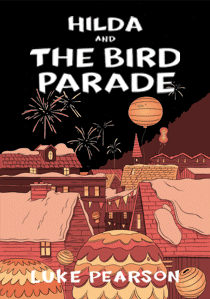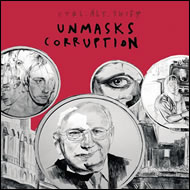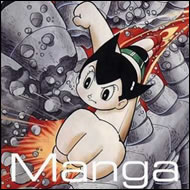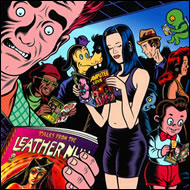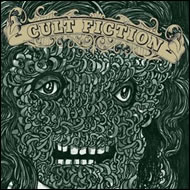1001 Comics:
Going Global
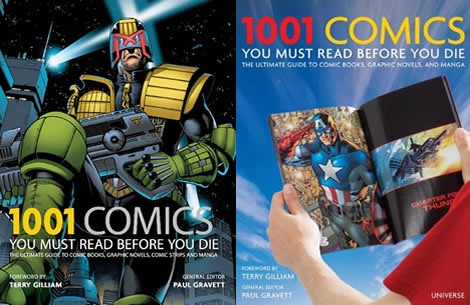
This coming Friday August 23rd, I will be talking about 1001 Comics You Must Read Before You Die at the Edinburgh International Book Festival, from 5-6pm, as part of their Stripped programme of events - you can book tickets here! You might not realise this, but the internationally translated and hugely successful series of 1001 guides, covering everything from beers and battles to golf courses, does not necessarily stay the same from country to country, or language to language. That’s right, there is no worldwide consensus on the best of anything! In the case of 1001 Comics, while the interior images cannot be changed due to everyone printing from the same master files, so those entries with illustrations have to be included wherever it is published, other text-only entries without a picture can be replaced by great comics from the past or present on each new edition’s home turf, as long as they slot into the chronology of the year of first publication, of course.
As the editor of the British and American original edition of 1001 Comics You Must Read Before You Die (covers above), I am in totally in favour of all local editions being adapted to suit their comics cultures, in fact I’d like to be able to insist on it. Of the translations so far of this 960-page brick of book, only the Spanish version from Grijalbo (below) decided to make no changes to the contents whatsover (apart from adding a Walking Dead cover on the spine) and stick to the original selection. This resulted is such surprising entries as ‘Los Chicos de Bash Street’ for Leo Baxendale’s Bash Street Kids, probably largely unknown to Spanish readers, and resulting in some equally surprising omissions.

Fortunately, editors of the other editions have been substituting certain entries with others from their own countries, opening up the richness of great sequential art being highlighted and making the book more relevant and commercial in the process. Nicolas Finet and his team in France and Andreas Knigge in Germany have supplanted around one hundred of the 1001 Comics with French/Francophone and German and other titles respectively. Matteo Stefanelli and Tomas Prokupek have also made a more modest set of changes to the Italian (below) and Czech editions from Atlante and Albatros, both coming out October 2013 and launching over the same weekend of November 1st to 3rd at Lucca Comics & Games Festival and Komiksfest in Prague.

I thought English readers might be interested to see what additions these four editors have made, so check out these listings of extra titles below. Before these listings, I have also translated for you the brand-new Foreword for the French edition from Flammarion and the French-Canadian edition from Trécarré (above), written by the celebrated Belgian comics scripter, writer, Hergé biographer and publisher Benoît Peeters. I especially like the fact that the French edition has the less urgent and fatalistic title of 1001 Comics You Must Read In Your Lifetime! And here’s a photo below from the 2012 Salon du Livre in Paris of Peeters (in the middle) signing copies with Finet and myself. Hopefully Japanese, Chinese, Brazilian-Portuguese and other editions will follow next year or in the near future. 1001 Comics has almost taken on a life of its own, as it spreads around the planet and awakens and enlightens wherever it goes. And just when you thought you might be getting a grasp of this ‘canon’, now there are even more titles for you to look forward to reading before you die!

Foreword to Les 1001 BD qu’il faut voir lues dans sa vie by Benoît Peeters
1001 Comics… This book is brimming with names and titles. Some speak to us straight away. While others, unknown to us, invite us to read them. Whatever their familiarity with the “Ninth Art”, readers will glimpse through these pages countless albums which they never knew existed.
Of course, no one “must” read them all. I would not like any idea of duty getting mixed up in what was first and foremost a school for truants, far from official culture. No matter: the multiple routes which this huge volume proposes to us are really welcome. Because our link with comics is marked by nostalgia and a sort of conservatism. For most of us, comics are inseparable from our childhood reading: America’s ‘Golden Age’ of the Thirties and Forties for the seniors, the authors of Spirou, Tintin and Pilote for the ‘baby boom’ kids, manga for many young people today. We have read and re-read these first stories we have loved so much, they have become part of us. It’s not easy for us to separate ourselves from them to try out other graphic and narrative styles. Out of this come the revivals and reboots, often opportunist and sometimes disappointing, of heroes of yesterday and before.
The first merit of this book is its openness and eclecticism. The result of lengthy exchanges between specialists for all over the world, under the wise leadership of Paul Gravett and Nicolas Finet, the book allocates a large amount of space to the masterpieces of the past, both the most popular and the least well-known, but above all it urges us to discover today’s creativity in all its extraordinary diversity.
The history of comics is short, but not as short as is often believed. Its origin is still disputed. Some want to trace it back to Trajan’s column or the Bayeux tapestry, if not the caves of Lascaux. Others cite its birth in American in 1896 with The Yellow Kid. But more and more specialists are agreeing on the name of the Genevan Rodolphe Töpffer (1799-1846). He was not only the first author of comics, but their first theorist. In 1837, introducing his Monsieur Jabot, he explained, “This little book is of a mixed nature. It is made up of a series of drawings (...) accompanied by a line or two of text. The drawings without this text would have only an obscure meaning; the text without the drawings would not mean a thing. The whole ensemble forms a sort of novel, all the more original for not in that it resembles no more a novel than anything else.” The essential has just been stated.
Töpffer was persuaded that this new form of storytelling “where there is so much potential” had a future. But he could never have imagined how important this “literature in prints” would become and how varied the works would be to which it gave birth, in the press and in books. Comics proposes a singular combination of drawings and words, an astonishingly effective way of linking fixed images. Far from being a simple genre, it is a medium all of its own, original and robust, which neither cinema, video games or the internet have theateneed so far. Accessible to all, easily reproduced, comics never stops reinvented itself, exploring the most diverse of territories.
It was the stuff of comedy with Töpffer and Christophe, and has stayed that way with Asterix, Dragon Ball and Titeuf. But it also turned into poetry with McCay and Herriman; into epics with Flash Gordon and Superman; into serials with Hergé, Hugo Pratt and Naoki Urasawa; intimacy with Chris Ware and Tanigichi; novelistic with Posy Simmonds and Alan Moore; minimalist with Schulz, Quino and Trondheim: painterly with Breccia, Mattotti and Loustal… Thanks to graphic novels like Maus, It Was The War of the Trenches and Barefoot Gen, comics has become perhaps better than film at representing the impossible. Robert Crumb, Yoshiharu Tsuge and Marjane Satrapi have show how far it lends itself to autobiography: isn’t every line they are composed of a sort of signature? Joe Sacco, Guy Delisle and Emmanuel Guibert have allowed comics to reconnect to serious reportage, taking us to Palestine, North Korea and Afghanistan.
The first quality of the book which you hold in your hands is that it treats all of these genres with enlightened eclecticism. It leans as much towards the most joyous children’s series as to the most sombre graphic novels. It assigns plenty of room to Franqin, Tezuka and Frank Miller, but it doesn’t forget unusual and still too little known masterpieces on the edges of comics, such as Leben? oder Theater? by Charlotte Salomon, Poem Strip by Dino Buzzati or The Cage by Martin Vaughn-James.
Since the last decades of the 20th century, the connections between the three great traditions - Franco-Belgian comics, American comics and manga - have multiplied. At the same time, comics have developed in many countries, from Canada to South Africa, from Mexico to China, as well as India, Algeria and Russia. The strength of world comics has been mainly built up from the margins and from independent publishing, instead of from the mainstream and blockbusters, as is the case in cinema. It’s a fortunate growth in world comics which for once does not come through globalisation.
Yes, comics today are living through a Golden Age, not merely summed up in fabulous sales figures of successful series. There is a wealth of books to seduce us, wherever we come from, whatever we like. The real difficulty is to orientate yourself amid all this plethora of production. Wherever we explore next, this book will serve as the best of guides.
====
Here are the 92 changes made for the French edition of 1001 Comics and the new entries written by Nicolas Finet with Gaëtan Akyüz
and Marcel Verbeke:
p114 Fripounet et Marisette by René Bonnet 1943 replaces Brenda Starr Reporter
p119 Crochemaille by Jolly 1946 replaces Tom Puss
p119 La Pension Radicelle by Giroud 1946 replaces Gordo
p121 Nasdine Hodja by Lécureux & René Bastard 1942 replaces Barnaby
p137 Johan et Pirlouit by Peyo 1952 replaces Eric the Norseman 1946
p149 Pif le Chien by Arnal 1948 replaces Lobey Dosser
p152 Arthur le fantôme by Jean Cézard 1953 replaces Torchy in Heartbeat
p 157 Fils de Chine by Roger Lécureux & Paul Gillon 1950 replaces King Aroo
p163 Tintin: Objectif Lune/On a marché sur la Lune 1950 replaces UK verison of Dennis the Menace
p 165 Moustache et Trotinette by Calvo 1952 replaces The Cisco Kid
p205 Barbe-Rouge by Charlier & Hubinon replaces Adam Strange
p209 13, rue de l’Espoir by Gall & Gillon 1959 replaces Sky Masters
p243 Le Grand Dudche by Cabu 1962 replaces Magnus: Robot Fighter
p 248 Ténébrax by Lob & Pichard 1964 replaces Barry McKenzie
p254 La Femme assise 1964 by Copi replaces Tiffany Jones
p269 Bruno Brazil by Greg & Vance replaces Leunig 1968
p269 Oliver Rameau by Greg & Dany replaces Star of the Giants 1968
p277 Luc Orient by Greg and Paape 1967 replaces The Genius Bakabon
p282 Blanche Eiphanie 1967 by Lob and Pichard replaces Lupin III
p295 Time is Money by Fred & Alexis 1969 replaces Los Agachados
p305 Cellulite by Claire Brétecher 1969 replaces Oh Wicked Wanda
p317 Paulette by Wolinkski & Pichard replaces 1970 Zippy the Pinhead
p 324 L’An O1 by Gébé 1971 replaces Patty’s World
p324 Hypocrite: Comment décoder l’etircopyh replaces The Fosdyke Saga 1971
p333 Docteur Justice 1970 by Olivier & Marcello replaces Trots and Bonnie 1972
p351 Chroniques de l’Île Grande by Gérard Lauzier 1975 replaces Manhunter 1973
p352 Dans les villages by Max Cabanes replaces DIdi Glitz 1973
p 361 Comanche: Le Ciel est rouge sur Laramie by Greg & Herman 1975 replaces Footrot Flats
p365 Léonard by De Groot & Turk 1977 replaces Warlock 1975
p369 Mémoire d’outre-Terre by Masse 1977 replaces From Eroica with Love
p374 Le Goulag by Dimitri 1975 replaces Swan
p388 Le Baron noir by Pétillon & Cabanes 1976 replaces Star of Cottonland
p391 La Course du rat by Lauzier 1978 replaces Ken Parker
p394 Le Roman de Renart by Forest & Cabanes 1978 replaces Genius by Glashan
p 394 Goudard by Berroyer & Gibrat 1978 replaces Beau Peep
p 411 Edmond le cochon by Veyron & Rochette 1979 replaces Comanche Moon
p418 Berceuse électrique by Ted Benoit replaces Nemesis the Warlock
p423 Salambô by Druillet replaces Bloom County 1980
p427 Le Transperceneige by Lob & Rochette 1982 replaces Anarcoma!
p433 Tonton Marcel by Régis France replaces If… 1981
p449 Les 7 Vies de lÉpervier by Cothias & Juillard replaces Starstruck 1982
p456 L’Amour propre by Martin Veyron 1982 replaces The Mercenary Baseball Team
p464 Les Compagnons du crépuscule replaces Air Mail 1983
p 472 Les Sales Blagues by Vuillemin repalces 2001 Nights 1983
p477 Coeurs de Sable by Paringaux & Loustal replaces Usagi Yojimbo 1984
p488 Quéquette Blues by Baru replaces Banana Fish 1985
p494 Luc Leroi Le Nain jaune by Denis 1985 replaces Dori Stories
p503 L’Amerzone by Sokal replaces Five Star Stories 1985
p 504 Le Grand Pouvoir du Chninkel by Van Hamme & Rosinski replaces Alex 1987
p 512 Les Aventures de Dieter Lumpoen by Zentner & Pellejero replaces Sensa Senso 1987
p515 Lulu s’maque by Margerin replaces Marshal Law 1987
p542 Le Bar du vieux Français by Lapière & Stassen 1992 replaces Paradise Town
p549 Georges et Louis romanciers by Goossens 1990 replaces Baby Blues
p563 Impasse rouge by Séra 1995 (wrong year!) replaces Shade the Changing Man
p626 La Gloire d’Héra by Le Tendre & Rossi 1994 replaces We Are Reproducing
p631 Péplum by Blutch 1996 replaces Mutts 1994
p642 Arq by Andreas 1997 replaces Storeyville 1995
p644 Belfast, l’adieu aux larmes by Ceppi 1997 replaces Bakune Young 1995
p648 Le Démon du midi by Florence Cestac replaces The Boondocks 1996
p652 Rampokan by Peter Van Dongen 1998 replaces Box Office Poison
p674 Universal War One 1998 Bajram replaces Transmetropolitan
p682 Le Vent dans les saules 1998 replaces Ethel & Ernest
p691 Ibicus by Rabaté replaces The Trumpets They Play! 1998
p692 Monsieur Mardi-Gras Descendres by Eric Liberge 1998 replaces Pastil
p702 Pin-up 4 Blackbird by Yann & Berthet 1998 replaces Tokyo Zombie
p704 Le Réducteur de vitesse by Blain 1999 replaces The Authority
p728 Le Feuilleton du siècle by Willem 2000 replaces Skibber Bye-Bye
p732 Pascin by Sfar 2005 replaces Louis by Metaphrog
p735 Bouncer by Jodorowsky & Boucq 2001 replaces Sexy Voice & Robo 2000
p745 Aberzen by N’Guessan 2001 replaces Cromartie High School
p748 Ubu Roi by Daniel Casanave 2001 replaces Perry Bible Fellowship
p742 Le Cri du peuple by Vautrin & Tardi 2001 replaces Get Your War On
p759 Le Retour à la terre by Ferri & Larcenet 2002 replaces Nodame Cantabile 2001
p763 Le Marquis d’Anaoin by Vehlmann & Bonhomme 2002 replaces Amelia Rules 2001
p786 Soupe froide by Charles Masson 2003 replaces Fluffy
p804 Lupus by Frederik Peeters 2002 replaces Achtung Zelig! 2004
p812 La Tendresse des crocodiles by Fred Bernard 2003 replaces Dokebi Bride 2004
p823 Smart Monkey by Winshluss 2004 replaces DC : The New Frontier
p823 Le Sang des Valentines by De Metter & Catel 2004 repl Moyasimon 2004
p836 Captain Biceps 2005 by Zep & Tébo replaces All Star Superman 2005
p848 Pascal Brutal by Riad Satouf 2006 replaces Lucky 2006
p860 Ile Bourbon 1730 by Appollo & Trondheim 2007 replaces How To Be Everywhere 2007
p884 Long John Silver by Dorison & Lauffray 2007 replaces Powr Mastrs
p894 Mourir partir revenir - Le Jeu des hirondelles by Zeina Abirached 2008 replaces Kick-Ass
p896 Messire Guillaume by Bonneval & Bonhomme 2005 replaces Monster Men Bureiko Lullaby
p900 Pauvres Zhéros by Baru 2008 replaces Rumble Strip 2008
p911 Nuit de fureur by Matz from the Jim Thompson story and Miles Hyman 2009, replaces Bayou
p912 Les Vaincus 2009 by Duchazeau 2009 replaces The Impostor’s Daughter
p916 Blast by Larcenet 2009 replaces Map of My Heart 2009
p922 Spirou, le journal d’un ingénu by Bravo 2008 replaces Special Exits 2010
p922 L’Autre Fin du monde by Ibn Al Rabin 2007 replaces Psychiatric Tales 2010
p928 Quai d’Orsay by Lanzac & Blain 2010 replaces Magic Mirror
Plus an additional page 960 is left blank for number ‘1002’ and notes!
===

Andreas Knigge made the following adjustments to the German edition of 1001 Comics from Olms (2012), with cover drawing by Ralf König:
77 replaces Norakuro 1930 with Tobias Seicherl (Austria)
104 replaces Desperate Dan 1937 with Pellos, Futuropolis (France)
163 replaces Dennis (UK) 1951 with Escher, Mecki (Fs.) (Germany)
177 replaces The Juggler of Our Lady 1953 with Hergé, Tintin (Mond) (Belgium)
180 replaces Bash Street Kids 1954 with Loriot, Reinhold das Nashorn (Germany)
183 replaces Rick Random 1954 with Nickel, Don Pedro (Germany)
(Switzerland)
187 replaces Carol Day 1956 with Kohlsaat, Jimmy das Gummipferd (Fs.) (Germany)
191 replaces Sennin Buraku 1956 with Harry und Platte (Belgium)
191 replaces Dreams and Somersaults 1956 with Valhardi (Belgium)
205 replaces Adam Strange 1958 with Wäscher, Nick der Weltraumfahrer (Germany)
248 replaces Barry McKenzie 1964 with Sigurd (Laban) (Germany)
254 replaces Tiffany Jones 1964 with Hegen, Digedags (Ritter Runkel) (East Germany)
269 replaces Leunig Strips 1965 with Michel Vaillant (Steve Warson) (Belgium)
269 replaces Star oft he Giants 1966 with Tanguy und Laverdure (Jijé) (Belgium)
277 replaces Genius Bakabu 1967 with Jugurtha (Belgium)
284 replaces Wanderer 1967 with Luc Orient (Belgium)
288 replaces Shameless School 1968 with Hermann, Andy Morgan (Coronado) (Belgium)
319 replaces Miyoko Asagawa Kibun 1970 with Palacios, El Cid (Spain)
324 replaces Patty’s World 1971 with Gotlib, Hamster Fidel (France)
342 replaces Drifting Classroom 1972 with Comanche (Belgium)
354 replaces Bella at the Bar 1974 with Lauzier, Lili Fatale (France)
365 replaces Defenders 1975 with de Luca, Shakespeare (Italy)
385 replaces Galaxy Express 999 1977 with Cosey, Jonathan (Switzerland)
404 replaces Viz 1979 with Cornillon/Chaland, Captivant (France)
433 replaces If … 1981 with Goetzinger/Christin, Die Diva (France)
434 replaces Nova-2 1981 with Seyfried, Invasion aus dem All-Tag (Germany)
451 replaces The Cabbie 1982 with Giardino, Ungarische Rhapsodie (Italy)
484 replaces Comixtlán 1985 with Sokal, Canardo (Weiße Vögel) (Belgium)
484 replaces The Useless Man 1985 with Pfarr, Dulle (Germany)
488 replaces City Hunter 1985 with Bunk, Kramer (Germany)
494 replaces Dori Stories 1986 with Gohs, Mystiska 2 withan (Sweden)
494 replaces Concrete 1986 with Gernhardt, Schnuffi (Germany)
504 replaces Alex 1986 with Le Gall, Theodor Pussel (France)
512 replaces Sensa Senso 1987 with Zentner/Pellejero, Dieter Lumpen (Spain)
515 replaces Marshal Law 1988 with Rosinski/van Hamme, Schninkel (France)
519 replaces Jimbo in Paradise 1988 with Micheluzzi, Bab el-Mandeb (Italy)
542 replaces Paradise Town 1990 with div., Durchbruch (Germany)
563 replaces Crayon Shin-chan 1990 with Mathieu, Der Ursprung (France)
573 replaces NonNonBa 1992 with Ban, Osamu Tezuka (Japan)
606 replaces K Chronicles 1994 with Berthet/Yann, Pin-Up (Belgium)
642 replaces Storeyville with Neon Genesis Evangelion
648 replaces Neon Genesis Evangelion 1995 with Christin/Goetzinger, Die Frau des Sultans (France)
687 replaces Pure Trance 1998 with Moers, Adolf (Germany)
704 replaces The Authority 1999 with König, Super Paradise (Germany)
728 replaces Skibber Bee-Bye 2000 with Kreitz, Schlechte Laune (Germany)
741 replaces 80° 2000 with Seyfried, Starship Eden (Germany)
746 replaces Chobits 2001 with Tardi, Cri du peuple (France)
748 replaces Mail Order Bride 2001 with Goetzinger/Christin, Agènce Hardy (France)
748 replaces Perry Bible 2001 with Le Tendre/Rossi, Tiresias (France)
772 replaces American Elf 2002 with Reiche, Strizz (Germany)
786 replaces Fluffy 2003 with Flix, Held (Germany)
790 replaces Yotsuba 2003 with Wazem, Koma (France)
801 replaces Kekkonen 2004 with 80° (France)
804 replaces Playback 2004 with Azumi, Dein liebliches, eiskaltes Ich (Japan)
812 replaces Dokebi Bride 2004 with Lepage, Muchacho (France)
823 replaces DC New Frontier 2004 with Abolin/Pont, Jenseits der Zeit (France)
830 replaces Jacaranda 2005 with Eisner, Das Komplott (USA)
853 replaces Sardine in Outer Space 2006 with Rudiš, Alois Nebel (Czech)
860 replaces How to Be Everywhere 2007 with Hoven, Liebe schaut weg (Germany)
860 replaces I Shall Destroy … 2007, Golo, B. Traven (France)
888 replaces Giraffes 2008 with Tatsumi, Gegen den Strom (Japan)
896 replaces Monster Men 2008 with Kleist, Havanna (Germany)
900 replaces Rumble Strip 2008 with König, Bibel-Trilogie (Germany)
911 replaces The Wrong Place 2009 with Prudhomme, Rebetiko (France)
911 replaces Bayou 2009 with Oesterle, Hector Umbra (Germany)
916 replaces Map of My Heart 2009 with Fior, 5000 km/h (Italy)
922 replaces Special Exits 2010 with with Bravo, Spirou (Belgium)
922 replaces Psychiatric Tales 2010 with Schultheiss, Reise mit Bill (Germany)
928 replaces Magic Mirror 2010 with Meter/Yelin, Gift (Germany)
928 replaces La Faille 2010 with Igort, Ukraine (Italy)
932 replaces Daytripper 2010 with Tian, L’année du lièvre (Cambodia)
938 Extra Title by Schwartz with Packeis (Germany)
===

For the Italian edition from Atlante, with a Dylan Dog cover by Claudio Villa, 1001 Reviewer Matteo Stefanelli subsituted the following fifteen Italian masterpieces:
Saturno contro la Terra 1936, plot by Cesare Zavattini, written by Federico Pedrocchi & drawn by Giovanni Scolari
Dick Fulmine 1938, written by Vincenzo Baggioli, drawn by Carlo Cossio
Pecos Bill 1949, written by Guido Martina, drawn by Raffaele Paparella
Pepito 1952, by Luciano Bottaro
Zagor: Iron-Man 1964, written by “Guido Nolitta”, drawn by Gallieno Ferri
Sturmtruppen 1969, by “Bonvi”
Totentanz 1970, by Dino Battaglia
La Pimpa 1975 by “Altan”
Petra chérie: Il Feldwebel galante 1979, by Attilio Micheluzzi
Lo Sconosciuto: Full Moon in Dèndera 1982, by “Magnus”
La Stefi 1987, by Grazia Nidasio
Rat-Man: Legami di sangue 1997, by Leo Ortolani
W.i.t.c.h. 2001, written by Elisabetta Gnone, drawn by Alessandro Barbucci & Barbara Canepa
Carnera 2001, by Davide Toffolo
Cinquemila chilometri al secondo 2010, by Manuele Fior
===

For the Czech edition from Albatros (above), 1001 Reviewer Tomas Prokupek substituted the following ten Czech masterpieces:
Šprýmovné kousky Frantíka Vovíska a kozla Bobeše (1922) by Josef Lada (below, reissued by Albatros) (the second collected edition)

Ferda Mravenec (1933) by Ondřej Sekora ( the first complete edition)
Rychlé šípy (1938) by Jaroslav Foglar, Jan Fischer and others ( the first complete edition)
Zuzanka a její svět (1947) by Jaroslav Přibík & Bohumil Konečný (a sample)
Muriel a andělé (1969) by Miloš Macourek & Kája Saudek (the first complete edition)
Čtyřlístek (1969) by Ljuba Štíplová & Jaroslav Němeček a další (the first comic book)
Vzpoura mozků (1977) by Václav Šorel & František Kobík (the third collected edition)
Mr. Sweet (1990) by Bohumil Fencl (a sample)
Alois Nebel (2003) by Jaroslav Rudiš & Jaromír 99 (the first complete edition)
Volemanovy příhody (2008) by Jiří Grus (the first complete edition)

On November 3rd and 4th 2013 I was Prague with publishers Plus to help promote the brand-new Czech edition of 1001 Comics. As the concluding event of Komiksfest 2013, there was a great launch on the Sunday evening at the superstore Comics Point. Then on Monday I was interviewed on Czech TV - Studio 6 live on their news programme (above, time from 52:18), and pre-recorded for their Culture News section (below, time from 21:15). I also went on live Cro Vitava radio (time from 5:30) in the afternoon.
An interview with me by Richard Klíčník has also appeared on the website of
Reflex magazine. Here’s the photo outside on a Prague bench that went with this!

I was also very lucky to record a twenty-five minute interview for another TV talkshow, Na plovarne with the charming host Marek Eben, due for broadcast in December. Lots of press coverage and interest in here in 1001 Comics, it’s been picked as one of this season’s twelve hottest books. Thanks to everyone at Plus for organising so much media promotion!


